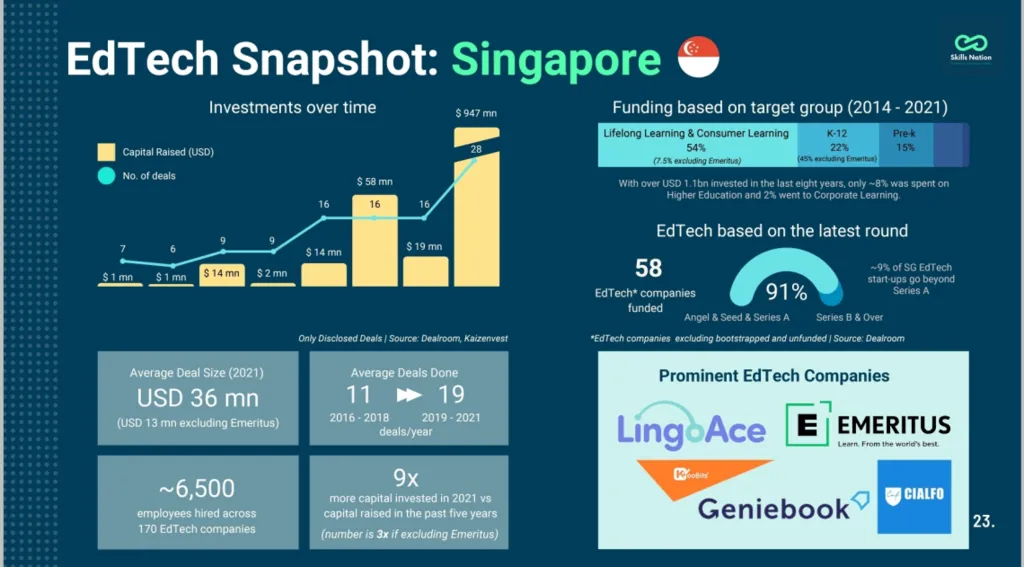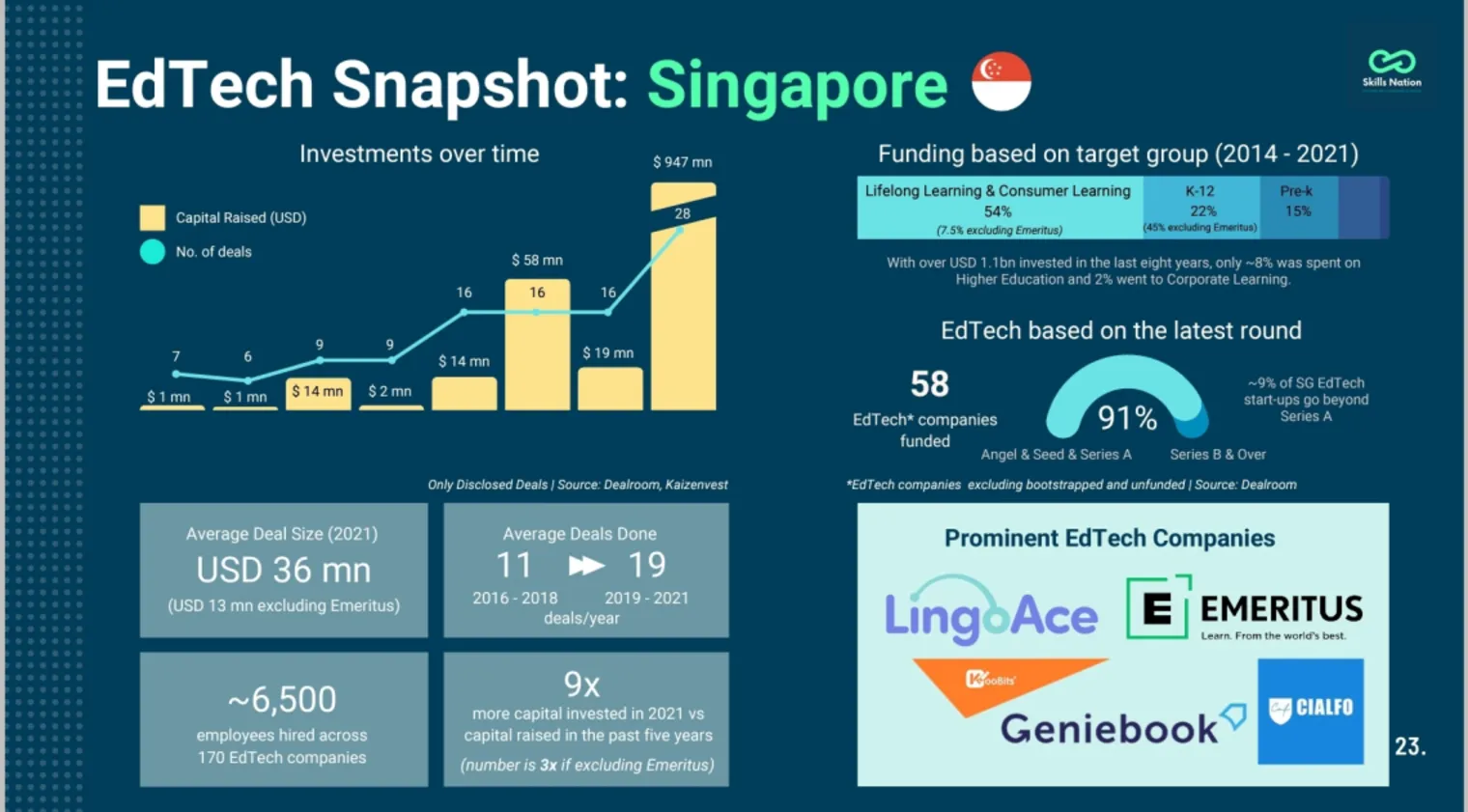Singapore’s edtech sector is expanding fast. The market is expected to reach US$2.2 billion by 2027, growing at a strong compound annual growth rate (CAGR) of 13.6% from 2020 to 2027. This growth is driven by rising digital adoption, government support, and a focus on personalized, tech-enabled learning. Beyond that, the online education segment is projected to reach US$4.83 billion by 2033, with a 13.84% CAGR from 2023 to 2033. These numbers highlight the strong momentum behind Singapore Edtech Market Opportunities. Let’s take a look!
Singapore Edtech Market Opportunities Show a Thriving Startup Ecosystem
Since launching its Smart Nation initiative in 2014, Singapore has built a powerful base for innovation. More than 790 edtech startups have emerged in the last decade. These range from AI-driven tutoring apps to platforms that offer immersive learning through VR (virtual reality) and AR (augmented reality).

This active startup scene is a sign of confidence from entrepreneurs, investors, and educators. They’re betting on technology to transform how people in Singapore learn, teach, and upskill.
Government Support Fuels Innovation
Singapore’s government is playing a big role in pushing edtech forward. In 2024, the education sector received a S$14.8 billion budget. This major investment supports infrastructure upgrades, curriculum reform, and digital innovation.
One of the key government efforts is the EdTech Masterplan 2030. This strategy promotes the use of AI and adaptive platforms to personalize learning. It prepares students for the future by ensuring they can thrive in a tech-driven world. Alongside that, the SkillsFuture initiative is helping working adults gain new skills through e-learning platforms, supporting a culture of lifelong learning.
Singapore Edtech Market Opportunities: AI, VR, and Personalized Learning in Classrooms
Edtech in Singapore is more than online classes and digital textbooks. Schools are using artificial intelligence to tailor lessons to individual learning styles. These adaptive systems help students learn at their own pace, improving outcomes and engagement.
Virtual and augmented reality tools are also becoming more common in classrooms. These immersive experiences make lessons more interactive—whether students are exploring historical sites in VR or dissecting virtual frogs in science class.
These technologies are making learning more engaging and accessible. And they’re opening up new ways for teachers to connect with students and track their progress.
Read Also: Cracking Singapore Digital Media Trends Today—Don’t Ignore This
Building for the Future of Work
Singapore’s digital infrastructure and high internet penetration have made it easier to roll out online learning across schools, homes, and businesses. This strong foundation is key to building a future-ready workforce. As industries evolve, the need for continuous upskilling is growing. Edtech platforms offer courses in coding, AI, data science, and more. These tools help Singaporeans keep up with the demands of a rapidly changing job market.
The government’s emphasis on workforce development through digital tools further strengthens the case for edtech’s long-term role in education.
Read Also: Singapore Construction Workforce Development to Empower Locals
Looking Ahead: Singapore Edtech Market Opportunities
With a solid policy framework, a booming startup scene, and cutting-edge technology, Singapore Edtech Market Opportunities are more promising than ever. Whether it’s AI-led learning, immersive classrooms, or accessible online courses, Singapore is building an education system that’s fast, flexible, and future-ready. As the market continues to grow past US$4.83 billion by 2033, one thing is clear: edtech will play a central role in how Singapore learns and thrives in the years ahead.






